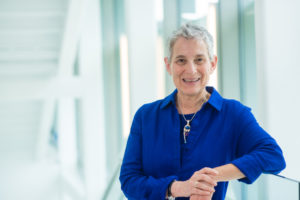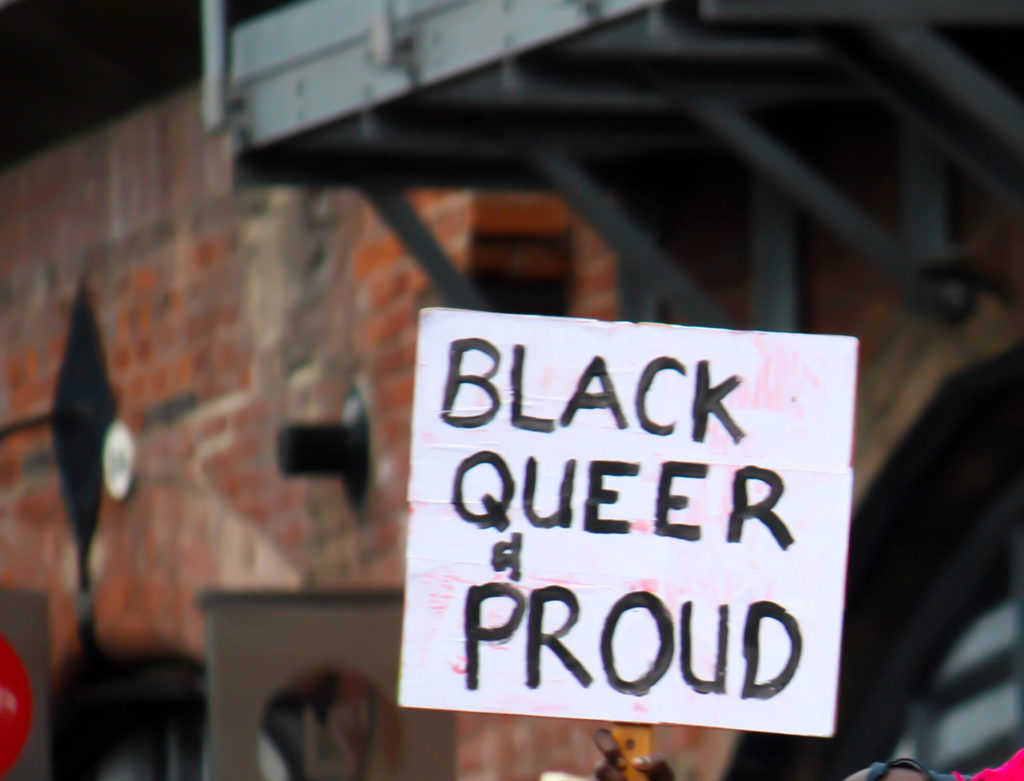
For this year’s Pride celebration, when community feels more important than ever, we have invited three colleagues to reflect on the past, present, and future of Pride and to offer their thoughts on the 50th anniversary of Pride events. We hope their reflections will help bring us together, to re-energize our movement, and inspire us to work toward ending oppression in all its forms. This piece is authored by Nancy Polikoff, Professor Emerita at American University Washington College of Law. She has written about, litigated about, and advocated for LGBTQ+ families for 45 years and is the author of Beyond (Straight and Gay) Marriage: Valuing All Families Under the Law.
This year’s Pride month celebrates the 50th anniversary of the first gay pride marches, which took place one year after Stonewall. Those public demonstrations, and the activism that followed, helped large numbers of men and women in heterosexual marriages recognize their sexuality and come out. Many had children. In the divorces that followed, large numbers of lesbian mothers and gay fathers faced court battles over custody and visitation rights. When they lost—and they often did—their rights as parents were severely curtailed, including no same-sex partners present when they saw their children and no inclusion of their children in any gay or lesbian events. In 1973, gay rights activist Bruce Voeller incurred exactly these types of restrictions. During a trial on his visitation rights, his ex-wife introduced his children’s drawings which included figures holding signs saying, “Gay is proud,” and “We want equal rights.” This type of evidence led the judge to rule that Voeller could only see his children for eight hours every two weeks.
It’s tempting to contrast those draconian times to more recent Pride celebrations, with stroller brigades of often-married same-sex couples and their children. But any narrative suggesting that it used to be hard to be an openly gay parent and now it isn’t tells a partial and misleading story. The early 1970’s was the era of “make love, not war.” Some judges were unfazed by openly gay parents. And today there are still parts of the country where coming out after a heterosexual marriage ends means facing a hostile judge who will use pretext to award custody to the heterosexual parent.
Even more importantly, economically comfortable, largely White, same-sex couples, who appeared in the advocacy for same-sex marriage and now appear in adoption and foster parenting advocacy, are unrepresentative of gay parents as a whole. Lesbian mothers and same-sex couples are disproportionately people of color, especially Black. “The sociodemographic characteristics of lesbian parents,” concluded one nationally representative study, “place their families at a relative disadvantage.” Twenty-four percent (24%) of children being raised by same-sex couples live in poverty.
The legal threat facing economically disadvantaged, Black lesbian mothers is not homophobic former spouses but the child removal power of the state. In a 2016 study of 339 Black mothers experiencing low income, the 21.3 percent who identified as lesbian/bisexual were four times more likely than those who identified as heterosexual to have lost their children to the state in child welfare proceedings. These lesbian mothers can face discrimination in the decision to the remove a child and in the decision whether to reunite the family. Just consider this: some of the same agencies that refuse to license LGBTQ+ foster and adoptive parents provide case management services to parents whose children have been removed and placed in foster homes. They have the power to determine that a child will never go home to a lesbian mother.
I don’t expect these families to be the face of whatever Pride observances we have in this year of COVID-19. But we will be standing with calls for racial and economic justice if we put them at the center of our LGBTQ+ family advocacy in the year ahead.
Read all of the reflections in the series:
- Pride 2020: Reflections on Past, Present, and Future, Bill Bettencourt, CSSP Senior Fellow
- Pride 2020: Centering Racial Justice, Nancy Polikoff, Professor Emerita American University Washington College of Law
- Pride 2020: Policies Over Labels, Bianca Wilson, the Rabbi Zacky Senior Scholar of Public Policy at the Williams Institute
- Pride 2020: Using Power and Privilege for Justice, Alan J. Dettlaff, Dean and Maconda Brown O’Connor Endowed Dean’s Chair at the University of Houston Graduate College of Social Work
